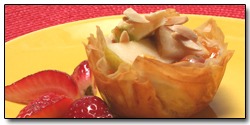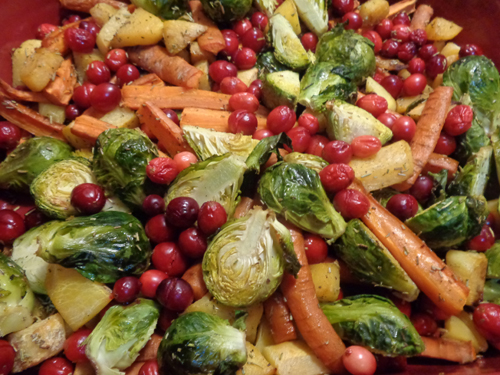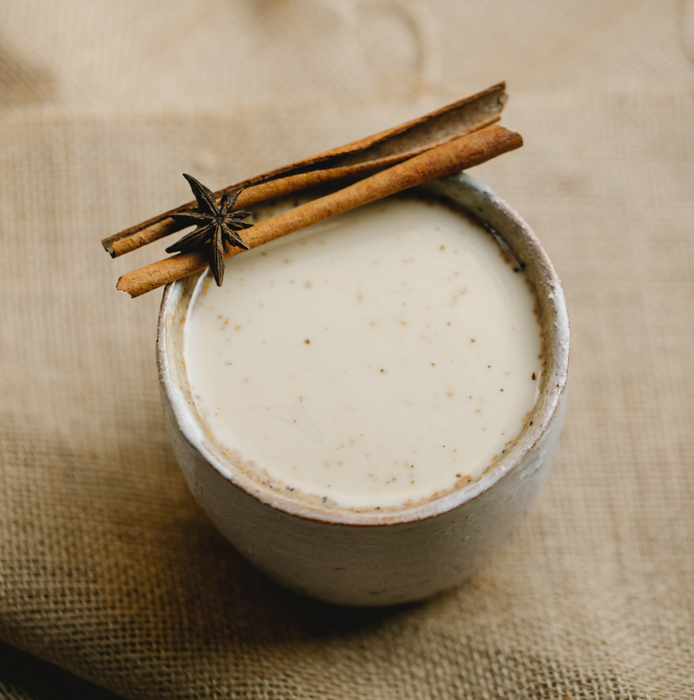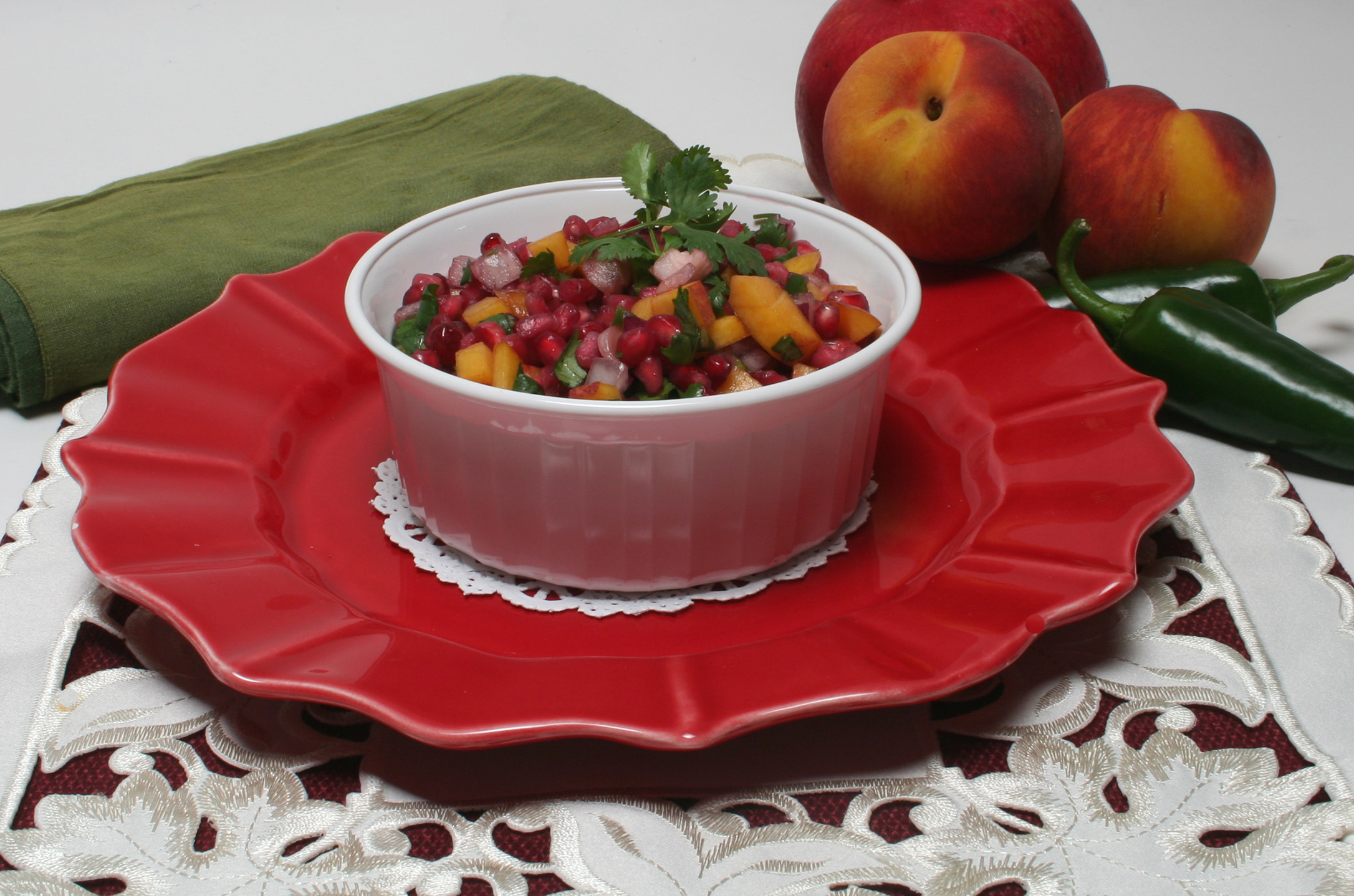A St. Patrick’s Day Salad
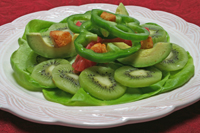
If you think food that celebrates St. Patrick’s Day means corned beef and cabbage with boiled potatoes, it’s time to update your thinking about Irish cooking.
You may still find plenty of corned beef served with cabbage and potatoes, but you can also enjoy food that is modern and innovative. Many Irish chefs are updating traditional dishes to make them more healthful, such as soda bread made with whole-wheat rather than refined flour, and Colcannon – cooked potatoes and cabbage mashed together – using little new potatoes, unpeeled, and steamed rather than boiled cabbage.
Always known for its marvelously fresh and high-quality ingredients, including shellfish and dairy products such as butter and fine cheeses, Ireland now also boasts enough fine chefs to generate reams of rave reviews. Some restaurants have received the prestigious Michelin stars that denote excellence.
Some of the innovative dishes of today’s Irish cooks stay close to Irish tradition and remain simple. You don’t even need a recipe, for example, to make steamed and lightly-buttered turnips sprinkled with fresh mint, or serve salmon accompanied by sautéed scallions and chopped apple, garnished with sorrel and parsley. Tasting of spring, this dish offers lots of green, making it a suitable dish for St. Patrick’s Day.
An accompaniment to that or another entrée for St. Paddy’s Day might be the following salad, which combines four green fruits and vegetables to represent all of Ireland, and pink grapefruit to represent the Orangemen. Topped with herbed croutons made from oatmeal bread, its dressing calls for clover honey. The honey might not come from four-leaf clovers, but hopefully, this dish will bring the luck of the Irish along with good taste and nutrition.
Emerald Salad
Makes 4 servings. (6 cups salad)
- 1 slice oatmeal bread
- Canola oil spray
- 12 Boston lettuce leaves
- 12 pink grapefruit sections (fresh, jarred, or canned)
- 12 thin avocado slices (1/2 medium avocado)
- 2 kiwi fruit (peeled and thinly sliced)
- 12 finely-sliced green bell pepper rings
- 1/2 cup grapefruit juice
- 2 Tbsp. lime juice
- 1-2 Tbsp. honey (preferably clover)
- 1 Tbsp. minced fresh mint leaves (or according to taste)
- Salt and freshly-ground black pepper
- 1 1/2 tsp. extra virgin olive oil
- Preheat oven to 350 degrees.
- To make croutons, coat one side of the bread with cooking spray. Sprinkle on the oregano. Bake on a rack in the center of the oven for 3 minutes, until the bread is dry and almost hard in the center. Let it sit 2 minutes. With a serrated knife, cut the bread into 1/2-inch cubes and set aside.
- On each of four salad plates, make a bed using 3 lettuce leaves. Place 3 grapefruit sections and 3 avocado slices in the center. Arrange kiwi slices in an overlapping ring around them. Place the 3 pepper rings over the grapefruit and avocado.
- For the dressing, whisk together in a small bowl the grapefruit and lime juice, 1 tablespoon honey and mint. Whisk in the oil. Season dressing to taste with salt and pepper. Taste, and if too tart, add the remaining honey, as desired.
- To serve, drizzle dressing over top of each salad. Sprinkle one-fourth of the warm croutons over each and serve.
Per serving: 159 calories, 6 g. total fat (less than 1 g. saturated fat), 28 g. carbohydrate, 3 g. protein, 4 g. dietary fiber, 42 mg. sodium.
The Author:
“Something Different” is written by Dana Jacobi, author of 12 Best Foods Cookbook and contributor to AICR’s New American Plate Cookbook: Recipes for a Healthy Weight and a Healthy Life.
AICR offers a Nutrition Hotline (1-800-843-8114). Open 9 a.m. to 5 p.m. ET, Monday-Friday, this free service allows you to ask a registered dietitian questions about diet, nutrition and cancer. The American Institute for Cancer Research is the only major cancer charity focusing exclusively on the link between diet, nutrition and cancer. The Institute provides a wide range of education programs that help millions of Americans learn to make changes for lower cancer risk. AICR also supports innovative research in cancer prevention and treatment at universities, hospitals and research centers across the U.S. The Institute has provided more than $86 million in funding for research in diet, nutrition and cancer. AICR’s Web address is www.aicr.org.


